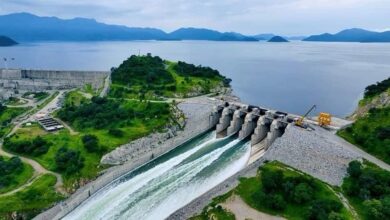Khartoum–Plans for referendums that could split Sudan in two are being hampered by delays, poor funding and a "negatively charged atmosphere" of threats and accusations, a UN panel said on 15 October.
Sudan is less than three months away from the scheduled start of two votes — one on whether its south should declare independence and the other on whether the contested oil-rich area of Abyei should join the north or oil-producing south.
Both votes were promised in a 2005 peace deal that ended decades of civil war between north and south Sudan.
Relations between the former foes have remained deeply troubled and diplomats have warned there is a risk of a return to conflict if either plebiscite is delayed or disrupted.
Members of a high-level UN panel on 15 October told journalists they were "very concerned" about a lack of progress in preparing for the votes with less than 90 days to go before the official start date of 9 January 2011.
"On both sides (north and south) the atmosphere remains negatively charged. Threats and accusations are being made," said former Tanzanian President Benjamin Mkapa, head of the panel UN Secretary-General Ban Ki-moon set up to monitor the referendums.
Northern and southern officials have accused each other of building up troops either side of their ill-defined shared border in recent weeks.
Mkapa said the commission set up to run the southern independence vote was short of funds and did not have enough money to hire staff or pay for basic equipment and the transportation of election materials.
"Funding from both the Government of National Unity and the Government of Southern Sudan is lagging. They must come forward with their share of the funds," he told a press conference.
The 2005 accord set up a semi-autonomous government in the south and a separate national coalition government including the north's National Congress Party (NCP) and the main party in the south, the Sudan People's Liberation Movement (SPLM).
Mkapa said the panel, which just ended a four-day tour of Sudan, was particularly concerned about the situation in Abyei where "the situation on the ground … is reported to be very tense."
UN officials told Reuters there is too little time to raise additional peacekeepers for Sudan before the vote, though the world body is redeploying UNMIS peacekeepers in the south to Abyei and other hotspots along the north-south border ahead of the referendum to create limited buffer zones.
"As of yesterday, UNMIS has significantly increased its troop presence in the (Abyei) area," a UN official said.
The north and south remain at loggerheads over which of the communities in the area count as Abyei residents with the right to vote. The latest round of talks, brokered by the US Sudan envoy Scott Gration, ended without agreement on 12 October.
Northern officials said on 14 October it would be impossible to hold the Abyei vote on time and they were open to a delay, an option Abyei's SPLM administrator dismissed as "unacceptable."
Mkapa said he was still confident the referendums could be "successful" without going into further details.
US President Barack Obama said on Thursday his administration was using a range of diplomatic means to ensure peaceful voting in the referendums.
Any resumption of fighting in Sudan could have a devastating impact on the country, its oil industry and the surrounding fractured region.




